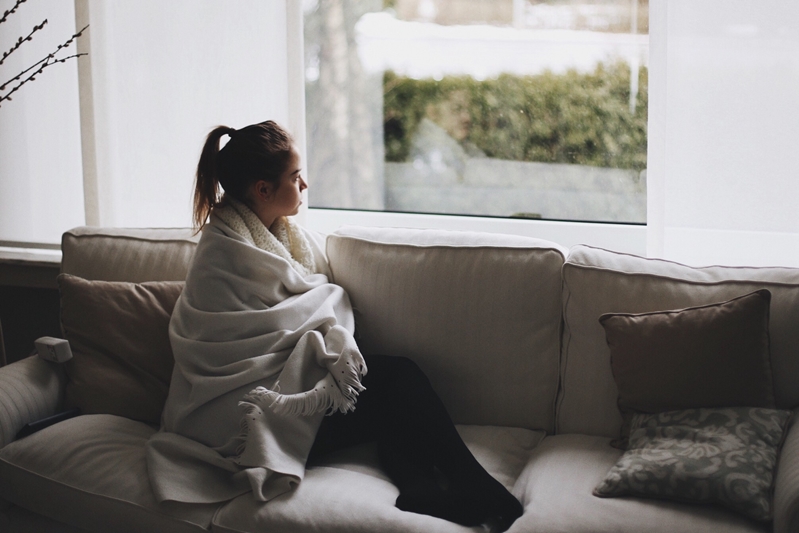November is nearly here and we all know that maintaining healthy habits in the winter can be challenging. Shorter days, colder weather and an increase in activities and commitments can make it hard to prioritize self-care. Here are some changes you can make now to care for your family's well-being during the winter season:
Prevent colds and the flu
This time of year is notorious for nasty colds and flu bugs. Take these simple steps to protect your family from the upcoming cold and flu season:
First, practice and encourage good germ-fighting habits. HealthLinkBC recommends that you wash your hands for at least 20 seconds, or the length of the ABCs song, using plain soap and warm water. You should also be vigilant about disinfecting contaminated surfaces, as viruses can live on hard surfaces for up to two days. Carry hand sanitizer with you throughout the day or keep one on your desk at work.
 Don't be afraid to take the day off if you're feeling under the weather.
Don't be afraid to take the day off if you're feeling under the weather.
Second, get your flu shot. The National Advisory Committee on Immunization recommends all individuals aged six months and older receive their influenza vaccination. It especially urges people at high risk of contracting the flu, such as pregnant women, get vaccinated.
Third, listen to your body. If you feel like you are getting sick, don't be afraid to stay home from work and rest. This helps your body recuperate while helping prevent others from becoming ill.
Get enough sleep
Mental Health Canada recommends adults sleep for seven to eight hours each night, while infants should sleep for 16 hours a day. And not surprisingly, teenagers need to be getting about nine hours of shut-eye a night to make sure they are getting optimal rest for their growing bodies.
Though winter can bring busy schedules due to increased school and employment responsibilities, prioritizing sleep is essential to staying healthy.
Many people report difficulty sleeping during the winter months as a lack of humidity and sunlight can alter your circadian rhythms. Keep your body in check by turning on a humidifier while you sleep and investing in an artificial sunlight lamp to make your mornings a little brighter.
Monitor your mood
About 25 percent of Canadians are estimated to have Seasonal Affective Disorder, according to The Globe and Mail. In addition to depression, people with SAD can also experience fatigue and weight gain.
Researchers believe SAD may be related to the shorter hours of sunlight during the winter. As the publication explained, these shorter days may throw off our bodies' regular production of melatonin, a hormone that is associated with mood regulation.
"About 25 percent of Canadians are estimated to have Seasonal Affective Disorder."
Getting some sunshine in the morning can help ward off SAD, as can regular exercise. However, you should exercise in the morning or during the day, as working out in the evening can actually worsen the symptoms of the disorder and contribute to poor sleep quality.
Prepare your home for the winter
Help keep you and your family safe and comfortable by prepping your house for the winter.
The Canadian Red Cross recommends checking that you have a back-up method to heat your home if there's a power outage, like a portable camping heater or fireplace. Put together an emergency preparedness kit with enough food and other supplies to sustain your family for at least 72 hours.
Review the inner workings of your home to prepare for the season ahead. Many heating and cooling professionals recommend inspecting your furnace for any signs of leaks or damage and keeping the cabinets open in sections of your home with poor insulation, such as the sinks in your kitchen and bathroom.
Change your air filters and check that your smoke and CO2 alarms are operating correctly, too. Change the batteries in your smoke alarm at least once a year, and replace the alarm itself every 10 years or sooner if it isn't working, advises Alberta Health Services.
With these tips, you can practice healthy habits even as the temperature gets chillier and the days get shorter.